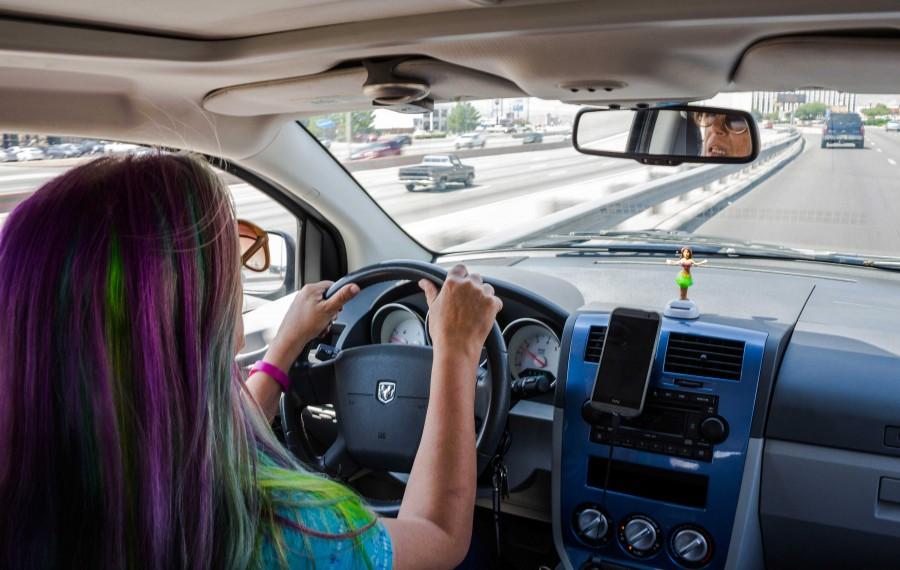With its founding in 2009, Uber has changed the transportation landscape in the United States and other countries around the world.
El Paso’s City Council has recently voted to have the city manager write a new ordinance covering Uber or to update the current taxi code to include the company.
For reasons such as price and convenience, many people in different cities around the country, including UTEP students, are choosing Uber instead of more conventional options like taxis. This has created a conflict between taxi companies and drivers with Uber and the service it provides.
For those not familiar, Uber is a self-declared ride-sharing application. Riders can request a car using their phone, and drivers, using the company-provided application, are alerted to who needs a ride nearby. The riders are later charged automatically through the application.
“It’s younger riders that are tech-savvy that are going to Uber instead of calling taxis,” said Luis Sallard, a dispatcher with Yellow Cab Taxi in El Paso.
For some riders, it’s not all about technology.
“It’s definitely cheaper,” said Rigo Chavez, a senior finance major.
However, technology does play a big part in some riders choosing Uber over taxis. The application tracks the driver over GPS and their position is shared with the rider.
“I like that it can be more reliable because you can see on your phone when the driver is getting close,” Chavez said. “I’ve asked for taxis before and at times they have not shown up on time, or there has been confusion with the drivers and they don’t show up at all.”
The convenience of the app and the cheaper prices are attractive to clients, but the way of providing these services is the main cause of conflict.
“Uber is operating in a legal void,” Sallard said.
Sallard explained that taxi drivers have to pay thousands of dollars per year in permits and insurance required by the city government for the taxis to operate. Uber, labeling itself a ride-sharing service, doesn’t pay these fees.
For all the fees they pay, some Uber drivers say the old-fashioned taxi model has its flaws.
“When we first got to El Paso (from Germany), we called four taxi companies to come pick us up,” said Catherine Hill, an Uber driver since early July. “All of them flat-out refused.”
Hill said most customers she picks up are from out of town, with surprisingly few local riders.
“I picked up my first El Pasoan (Tuesday), it’s just been him and you guys,” she said, referring to the two Prospector staff members in the car with her.
Hill thinks the app simply doesn’t have a large local following as yet.
“I think once it’s more locally known, it will be used more, especially by people that don’t want to drive drunk,” Hill said.
Hill explained that she used to pick up revelers on weekend nights, and that many told her they preferred the app to risking a DUI.
The competition for clients is ongoing and some such as Sallard said the customers lost to Uber are not lost forever.
“People stop calling and use Uber because it’s more attractive, but some come back,” Sallard said.
The solution, Sallard said, is in letting the cab companies compete freely against Uber. Something they are already doing on the technological front.
“We have an app, called GATA, that lets riders ask for cabs through their phones,” Sallard said. “It calls the closest cab from Yellow Cab or Checker.”
Taxi drivers are looking to level the playing field in all aspects, not just technology..
“Uber charges less than we do, but city council won’t let us compete,” Sallard said. “Just as they tie our hands to not charge more, which I think is good, they tie our hands so that we can’t charge less.”
According to local news sources, traditional taxi companies and Uber went head to head on Aug 25 during a council meeting. Taxi companies called for Uber to be held to the same standards, while Uber claimed it was an entirely different service.
Julio Cesar Chavez may be reached at [email protected].










